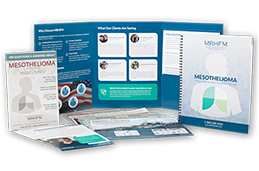Music Could Help Reduce Pain for Cancer, Mesothelioma Patients

The effects of music therapy on patients with conditions from breast to lung cancer has been studied for years. The results have been so positive, that many cancer centers have integrated music therapy into their support programs for patients before, during and after treatment. MD Anderson Cancer Center, UT Southwestern Medical Center, and Huntsman Cancer Institute are just a few.
According to MD Anderson, “when used in conjunction with conventional cancer treatments, music therapy has been found to help reduce pain and discomfort, improve mood and diminish stress, increase quality of life, and allow patients to better communicate their fears, sadness or other feelings.” Says UT Southwestern, “research has shown that music therapy can lower patients’ blood pressure, reduce pain, nausea, and anxiety, and encourage self-expression.”
And in “Five Ways Music Therapy Can Help During Cancer Treatment,” Huntsman Cancer Center said, “studies have shown that music therapy can help reduce pain perception.” A study patients who underwent surgery for lung cancer, showed that “patients who received music therapy before and after surgery reported less pain and had lower blood pressure, heart rate and anxiety.”
So what exactly is music therapy? The American Music Therapy Association (AMTA) defines this complementary therapy as the clinical and evidence-based use of music interventions to accomplish individualized goals by a credentialed professional who has completed an approved music therapy program. Music therapy may include:
- Composing personalized songs
- Improvisation
- Interpreting lyrics
- Listening to music with patients
- Singing to the patient
Some music therapists may also use drumming to meet the physical, emotional, psychological, spiritual, and social needs of the patient and their families.
During a typical music therapy session, music therapists try to assess how patients are coping with their diagnosis, how they are handling the day’s appointment and what, in general, is on their mind, says UT Southwestern. Next, the therapist will determine the type of music the patient likes and if they would like to sing, play music, write music, all of the above or nothing at all. Maybe the patient would just like to listen, in which case, the therapist may sing for the patient, play for the patient or both.
“We sing with and for patients often,” says UT Southwestern. “We have guitars, so, when it’s appropriate, we can incorporate those into the session, too. If the patient wants to try songwriting, we can improvise on the spot or use a template to make it an easy process.” Group singing is another option that MD Anderson says, “improves mood, coping strategies and pain management, and has other health benefits.” The Integrative Medicine Center at MD Anderson provides music therapy for children and adult inpatients, outpatients and their families including individual and group sessions, using passive listening or actively playing various musical instruments.
No musical experience is required to participate in or reap the benefits of music therapy at any center and it is generally offered at no cost.
When approached about trying music therapy, more than 70% of patients agree to it. After treatment, patients leave with the tools needed to continue reaping the benefits at home and through the rest of the recovery process.
If you have been diagnosed with mesothelioma, complementary therapies such as music therapy may be effective in easing the symptoms of the disease and treatments. Talk to your doctor about all of the complementary therapies available to you today.
Sources
Alvarado, Alex, Michael Richardson and Ingrid Sevy. “Music Therapy Helps People With Cancer.” MD Anderson Cancer Center. The University of Texas MD Anderson Cancer Center, 04 Mar. 2011. Web. 02 Sep. 2019.
Dickens, Richard. “Music, Drumming, Vibration: Tools to Help Maintain Balance for Cancer Patients and Caregivers.” LungCancer.org. CancerCare, 2019. Web. 02 Sep. 2019.
“Five Ways Music Therapy Can Help During Cancer Treatment.” Huntsman Cancer Institute at the University of Utah. University of Utah Health, 14 Jun. 2017. Web. 02 Sep. 2019.
“How music can help you heal.” Harvard Health Publishing. Harvard Medical School, Feb. 2016. Web. 02 Sep. 2019.
Kendall, Jeffrey and Christina Stock. “Music therapy comforts cancer patients.” UT Southwestern Medical Center. The University of Texas Southwestern Medical Center, Southwestern Health Resources, 19 Aug. 2015. Web. 02 Sep. 2019.
“What is Music Therapy?” MusicTherapy.org. The American Music Therapy Association (AMTA), 1998-2019. Web. 02 Sep. 2019.



